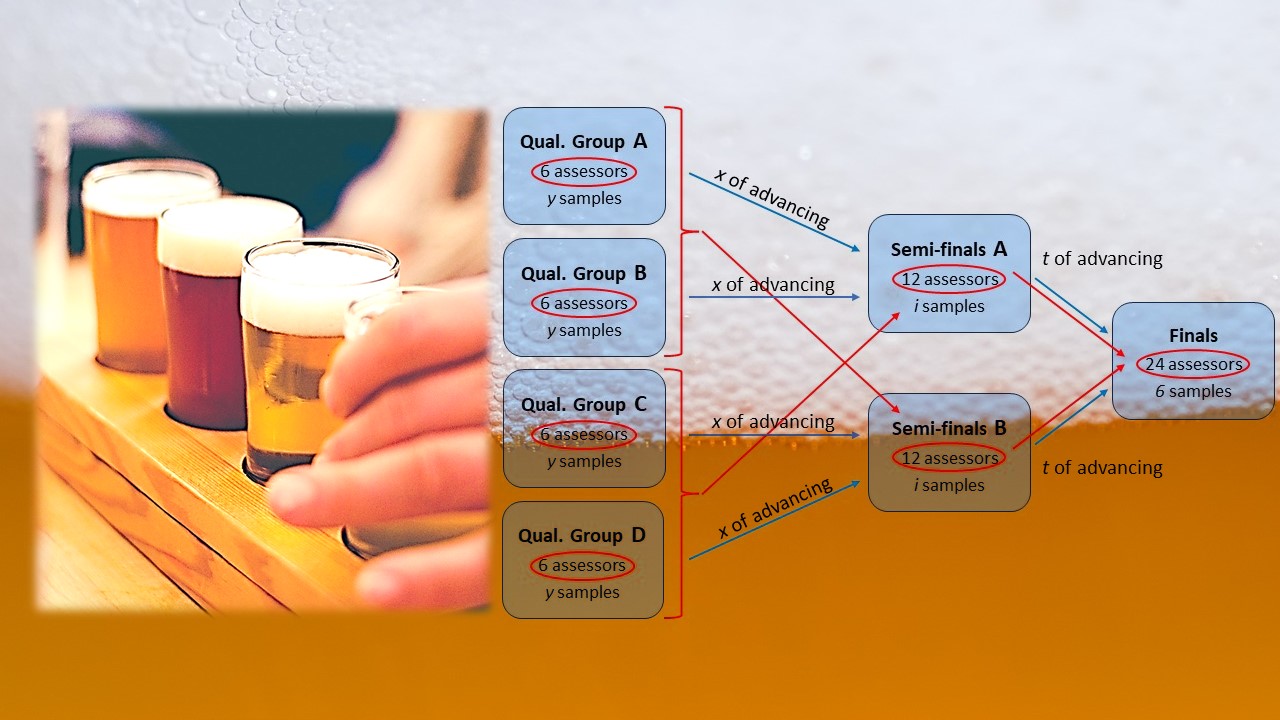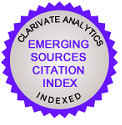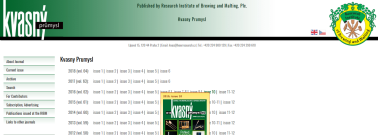Methodologic procedure of beer competitions eliminating the problematic practices and based on the probabilistic approach
DOI:
https://doi.org/10.18832/kp2024.70.910Keywords:
sensory analysis, beer evaluation, Bayesian statistics, Bayesian theorem, competition fairnessAbstract
In beer competitions, there are some common problematic practices which ruin the final results, i.e. inappropriate distribution of samples into individual groups, inappropriate scoring of samples, comparison of results obtained from different sub-groups selecting better samples, inappropriate method of handling tied scores, and inappropriate numerical evaluation. To avoid these, the presented study aims to propose a methodologic procedure which eliminates these problematic practices and is based on the probabilistic approach. Further, it wishes to test and evaluate it by the Monte Carlo simulation. The procedure is based on a sensory evaluation of beer samples by assessors through ranking tests. Beer samples and assessors are randomly divided into groups in the lowest round of the competition. Data evaluation, which determines advancing samples or winners, is based on the application of the probability theory, namely the Bayesian theorem, so that the best-evaluated samples could be identified. This procedure achieves a higher probabilitiy of accurately recognised best-evaluated samples in comparison to the procedures involving the aforementioned problematic practices.
References
Olšovská, J., Čejka, P, Štěrba K., Slabý, M., Frantík, F. (2017). Senzorická analýza piva. Výzkumný ústav pivovarský a sladařský, a.s., Prague. ISBN 978-80-86576-74-9
Frantík, F., Čejka, P., Čapková, V. (2005). Beer Competition in the Czech Republic. Kvasny prumysl, 51(10), 11–12. https://doi.org/10.18832/kp2005018.
Frantík, F., Čejka, P. (2001). Způsoby hodnocení piv při soutěžích v České republice. Kvasny prumysl, 47(2), 34–38. https://doi.org/10.18832/kp2001004.
ISO 5492:1992. Sensory analysis — Vocabulary.
ISO 6658:2005. Sensory analysis — Methodology — General guidance.
ISO 8586-1:1993. Sensory analysis – General guidance for the selection, training and monitoring of assessors -- Part 1: Selected assessors.
ISO 8586-2:1994. Sensory analysis – General guidance for the selection, training and monitoring of assessors -- Part 2: Experts.
Analytica EBC 13.4. Sensory Analysis: Selection and Training of Assessors (1997). Available online: https://brewup.eu/ebc-analytica/sensory/sensory-analysis-selection-and-training-of-assessors-im-am/13.4 [accessed on 25 July 2024]
Analytica EBC 13.11. Sensory Analysis: Ranking Test (1997). Available online: https://brewup.eu/ebc-analytica/sensory/sensory-analysis-ranking-test-im/13.11 [accessed on 25 July 2024]
Analytica EBC 13.13. Sensory Analysis: Routine Descriptive Test Guideline (2004). Available online: https://brewup.eu/ebc-analytica/sensory/sensory-analysis-routine-descriptive-test-guideline/13.13 [accessed on 25 July 2024]
Bertsekas, D.P., Tsitskilis, J.N. (2008). Introduction to Probability. 2nd Edition, Athena Scientific, p.528. ISBN 978-1-886529-23-6
van Oijen, M. (2020). Bayesian Compendium. 1st Edition, Springer Cham, p. 204. ISBN 978-3-030-55896-3 https://doi.org/10.1007/978-3-030-55897-0

Downloads
Published
How to Cite
Issue
Section
License
Copyright (c) 2024 Tomáš Vrzal, Jana Olšovská

This work is licensed under a Creative Commons Attribution 4.0 International License.







